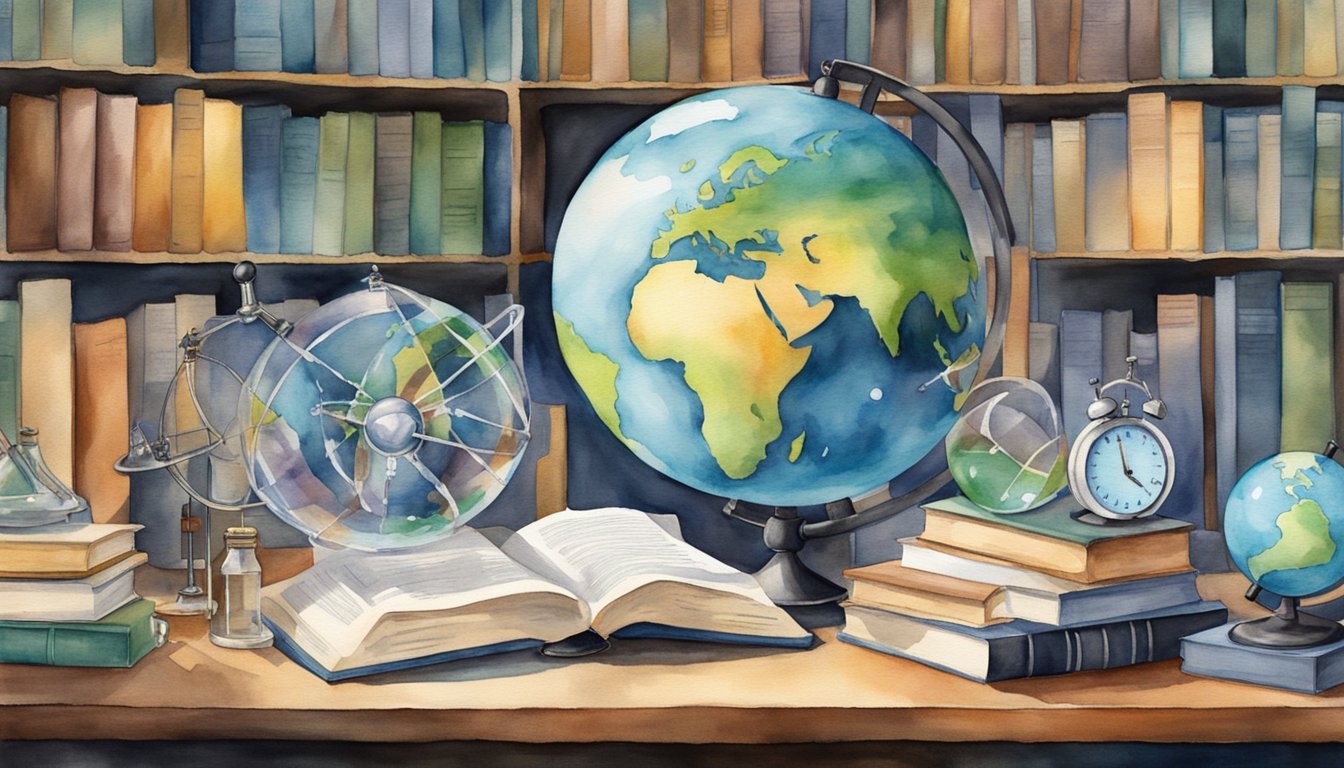Discovering the Universe Through Science Books
Exploring the vastness of the cosmos, untangling the intricacies of evolution, and uncovering the mysteries of physics are all made possible through the rich treasure trove of science books. These books open a window to the universe and beyond, making the most complex scientific concepts accessible and fascinating.
Cosmos and Astronomy
The cosmos has always captured the human imagination and books like Carl Sagan’s seminal work, “Cosmos”, invite readers to ponder the scale of the universe. Astronomy enthusiasts can further explore the celestial wonders with titles such as “A Brief History of Time” by Stephen Hawking, which delves into black holes and the big bang theory. For those interested in the possibilities of space travel and the exploration of other planets, the prospects of visiting places like Mars are brought to life in cutting-edge science literature.
Evolution and Biology
Understanding the intricacies of life on Earth is an ongoing scientific endeavor, where Charles Darwin’s “The Origin of Species” remains a cornerstone of evolutionary biology. In the modern era, Richard Dawkins’ “The Selfish Gene” explores the concept of genes as the principal unit of selection, providing readers with insights into the driving forces of evolution.
Physics and the Fabric of Reality
Physics provides a framework for understanding the very fabric of reality, and books like Brian Greene’s “The Elegant Universe: Superstrings, Hidden Dimensions, and the Quest for the Ultimate Theory” help demystify complex concepts such as string theory. Albert Einstein remains a pivotal figure in physics, and his revolutionary theories have inspired generations of scientists and authors to convey the beauty of the physical laws that govern our universe.
Earth, Environment, and Beyond
The story of Earth and its environment is one of constant change. Rachel Carson’s groundbreaking book “Silent Spring”, which brought global attention to the environmental impacts of DDT, serves as a testament to the power of scientific literature in shaping public discourse on issues like climate change. The importance of Earth’s flora is evident in the study of trees and their critical role in maintaining the planet’s ecological balance.
Impact of Science on Society

The intersection of science with daily life has profound implications, from shaping historical narratives to advancing public health. Each subsection delves into particular aspects where science has had a significant influence on society.
Medicine and Health
Advancements in medicine have brought about life-saving changes, notably vaccines which have curbed the spread of diseases like viruses. The COVID-19 pandemic exemplified the rapid collaborative efforts in the scientific community to develop a vaccine against the novel coronavirus, highlighting the critical role of modern medicine during global health crises.
Science, History, and Humanity
The history of science is marked by milestones such as Charles Darwin’s theory of evolution. His work has reshaped how humanity perceives its place in the natural world. Books like Bill Bryson’s “A Short History of Nearly Everything” offer engaging narratives on these scientific developments, making the subject of science accessible to the general public through well-crafted literature.
Literature in Science
Quality science books, both non-fiction and popular science, can bridge the gap between complex concepts and reader comprehension. Authors like Carl Zimmer and works such as Rachel Carson’s “Silent Spring” or Sagan’s “The Demon-Haunted World” have been instrumental in bringing scientific issues to the forefront of societal discourse. They craft narratives that captivate while educating, demonstrating how literature can affect public opinion and policy on scientific matters.
Science in Society – Five Books
The Impact of Science on Society (Routledge Classics)
The Impact of Science on Society | Bertrand Russell | Taylor & Francis
The Impact of Science on Society – Bertrand Russell – Google Books
PDF Broader Impacts of Science on Society – Cambridge University Press …

